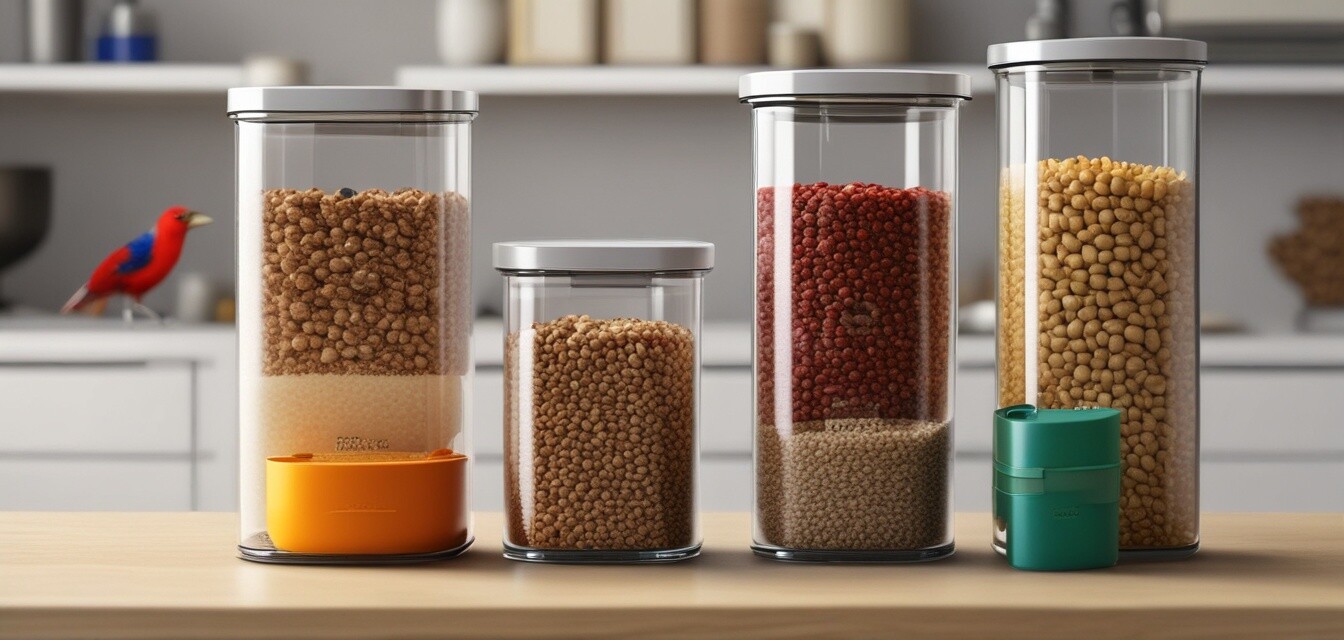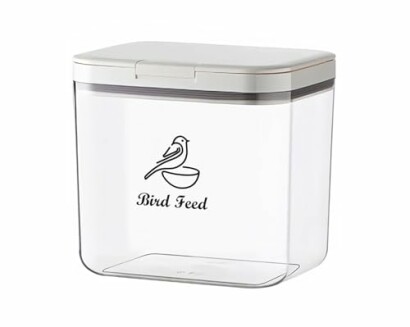
Best Practices for Storing Bird Food
Key Takeaways
- Choose airtight containers to keep bird food fresh.
- Opt for BPA-free materials to ensure safety.
- Consider stackable designs for efficient space usage.
- Store bird food in a cool, dry place, away from direct sunlight.
- Use clear containers for visibility of food levels.
Ensuring that your bird's food remains fresh and safe is crucial for their health and happiness. When it comes to storing bird food, various factors need to be considered to avoid spoilage and contamination. This article will guide you through best practices for storing bird food, helping you to select the right storage solutions that keep your feathered friends satisfied.
Why Proper Storage Matters
Bird food can attract pests and may spoil if not stored correctly. By following best practices, you can ensure that the food you provide stays fresh and maintains its nutritional value. Here are some key reasons why proper storage is essential:
- Prevent spoilage and waste.
- Avoid contamination from contaminants or pests.
- Maintain the nutritional integrity of the food.
Best Storage Solutions for Bird Food
Choosing the right storage solution for bird food is vital. Here are some of the most effective options available:
| Storage Option | Features | Benefits |
|---|---|---|
| Airtight Containers | Secures contents from moisture and pests. | Ensures freshness for longer periods. |
| BPA-Free Plastic Containers | Durable and safe plastics for food storage. | No harmful chemicals that can leach into food. |
| Stackable Storage Bins | Space-efficient design allows for easy organization. | Maximizes storage while keeping your space tidy. |
Recommended Storage Products
Here’s a recommended product that fits these best practices:
Ctomche Bird Seed Storage Container
Store your bird food efficiently with this airtight container featuring a one-click design and included scoop for ease of serving.
Learn MoreTips for Maintaining Freshness
Helpful Tips
- Check the expiry date on your bird food regularly to avoid using expired products.
- Store your containers away from heat sources to prevent degradation of the materials.
- Keep your storage area clean and pest-free.
- Consider transferring bird food to smaller containers to keep access simple and easy.
Common Mistakes to Avoid
While storing bird food seems straightforward, there are common mistakes to watch out for:
- Using non-airtight containers that allow air and humidity in.
- Overfilling containers, which can create pressure that breaks seals.
- Ignoring the original packaging that often contains important expiration information.
Conclusion
Storing bird food properly ensures your avian friends enjoy fresh and safe meals. By investing in quality storage solutions, you can greatly enhance the longevity of their food. Remember to avoid common mistakes and regularly check your food supplies. For more detailed guides, visit our Buying Guides for Cage Birds section or explore other resources.
